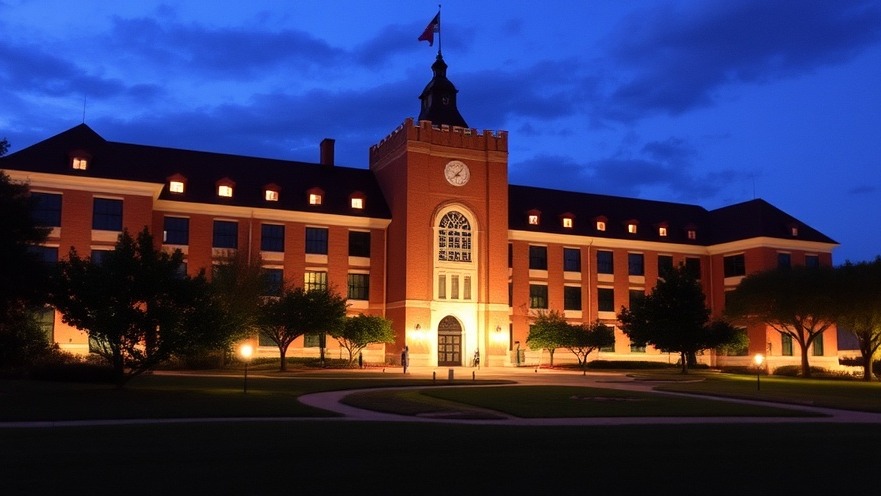
Texas Professor’s Court Win: A Landmark Reinstatement
In a fascinating turn of events, Texas State University professor Thomas Alter has been reinstated following a legal injunction issued by a district judge after he was fired for alleged comments that "incited violence" during a socialist conference. While the reinstatement is a victory for Alter, the university administration's response underscores a more significant issue regarding academic freedom and the limits of speech on campuses.
The Circumstances of the Dismissal
Alter's controversial remarks, which surfaced in a video discussion posted online, sparked outrage and led to his termination on September 10. The comments were perceived by university officials as advocating for violence, which raised questions about the balance between freedom of expression and the responsibility to maintain a safe educational environment. Critics have argued that Alter’s dismissal was a swift reaction lacking necessary due process.
Legal Perspectives on Academic Freedom
The court's decision to grant an injunction allows Alter to be reinstated with pay but prevents him from teaching classes during the ongoing investigation into his conduct. This situation points to a broader debate about academic freedom: where should universities draw the line when faculty members express controversial views? Legal experts suggest that this case could set a precedent regarding the limitations of free speech on campus.
Public Outcry and Community Support
Following Alter's termination, local politicians and advocacy groups rallied to support him. At a recent demonstration in San Marcos, key figures, including Hays County Judge Ruben Becerra, voiced that the incident reflects an overarching trend of what they termed "authoritarian overreach" in higher education institutions. Such a sentiment resonates particularly within the current landscape of polarized politics, where academic expressions often come under scrutiny.
Implications for Future Academic Discourse
This incident poses significant questions about the environment on college campuses in Texas and beyond. How might educational institutions navigate the fine line between fostering open discussions and ensuring a safe atmosphere for all students? As universities strive to cultivate diverse opinions, the challenge will be maintaining an open dialogue without compromising the safety and well-being of their communities.
Comparative Context: Similar Cases Across the Nation
Alter’s incident is not isolated. It reflects a growing trend across the United States, where educators are facing reprimands for their remarks both on and off-campus. For example, previous cases have illustrated the varying responses — some universities have opted to uphold the principles of free expression, while others have enacted strict penalties in response to public backlash. Such inconsistencies showcase an urgent need for clearer policies surrounding faculty speech and actions.
Elevating the Discourse
While Alter’s case remains under examination, it highlights the necessity for educators to engage in responsible conversations about contentious topics. Whether discussing political ideologies at conferences or expressing opinions in classroom settings, professors must navigate these discussions with care, recognizing the potential implications of their words. The ongoing dialogue about civil discourse in academia is critical as both educators and students attempt to shape a more inclusive and understanding educational landscape.
What’s Next for Alter and Texas State University?
As Texas State University reviews Alter’s case, it will be important to observe the outcomes and any policy recommendations that arise from this incident. The case serves as an illuminating example of the intersections between free speech, the academic environment, and community expectations. Both the university and Alter will need to find common ground to ensure intellectual freedom while promoting a safe space for dialogue.
In the fast-evolving world of academia, incidents like Alter's reiterate the importance of vigilance regarding academic freedom's protection. Ensuring these freedoms while continually striving for a respectful environment mandates ongoing conversation and thoughtful policy.
 Add Element
Add Element  Add Row
Add Row 



Write A Comment